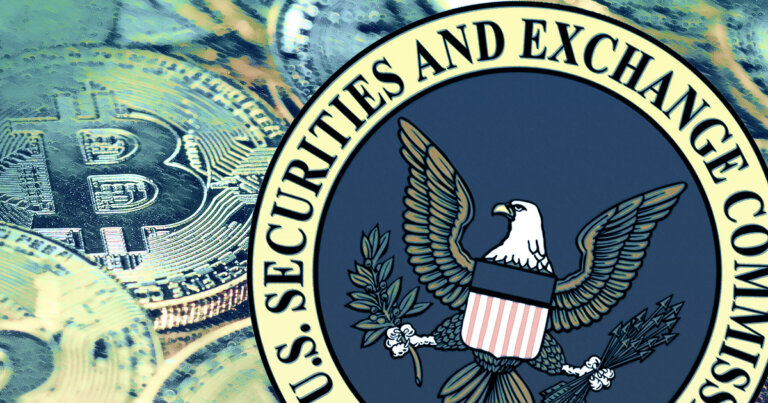 SEC denies VanEck Bitcoin spot ETF for a third time; commissioners dissent
SEC denies VanEck Bitcoin spot ETF for a third time; commissioners dissent SEC denies VanEck Bitcoin spot ETF for a third time; commissioners dissent
Commissioner Hester Peirce says the SEC's rules are "uniquely burdensome."

Cover art/illustration via CryptoSlate. Image includes combined content which may include AI-generated content.
The U.S. Securities and Exchange Commission (SEC) has once again rejected VanEck’s proposal for a Bitcoin spot ETF, according to a March 10 filing.
SEC rejects VanEck Bitcoin ETF
The relevant filing indicates that the SEC has rejected a rule change through which Cboe BZX Exchange intended to list VanEck’s exchange-traded fund (ETF).
The SEC rejected the proposal less than one year after it was first put forward on June 24, 2022. The regulator previously denied similar proposals for a VanEck Bitcoin spot ETF in 2021 and 2017. It also delayed a decision on the product multiple times.
The core issue, according to the SEC, is that ETF providers have not shown that they can prevent market manipulation. Specifically, those providers have not shown that they have a surveillance-sharing agreement with a significantly-sized market.
The SEC has also rejected competing proposals from other firms such as Wisdomtree, ARK Invest, and Valkyrie Investments on virtually identical grounds.
Commissioners dissent
Though the SEC’s reasoning has been applied repeatedly, two SEC commissioners — Hester Peirce and Mark Uyeda — criticized the regulator’s decision today.
They noted that it has been six years since the SEC rejected the first application for a spot Bitcoin exchange-traded fund or exchange-traded product (ETP).
Though the SEC claims it applies the same rules to other ETP proposals, Peirce and Uyeda say that its rules for Bitcoin spot ETPs are in fact “uniquely burdensome.”
Specifically, they argue that the SEC’s rules for determining a “significant” market usually apply to a particular trading venue, not an overall market. They also say that the SEC applies a two-part test: first, whether someone attempting to manipulate the market would also need to trade on the relevant market so that surveillance measures are effective, and second, whether ETP trading would be a predominant influence on prices in the relevant market. These criteria are only applied to crypto products, they say.
Peirce has previously expressed criticism towards her agency’s stance, and as such, her latest dissent may not impact future decisions around ETF approvals.
Elsewhere, Grayscale’s decision to challenge the SEC in court over its proposed ETF conversion could help that company win approval, depending on the outcome.


























































































